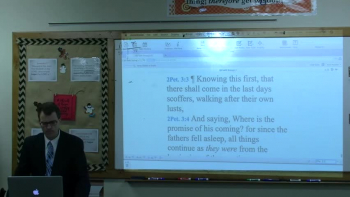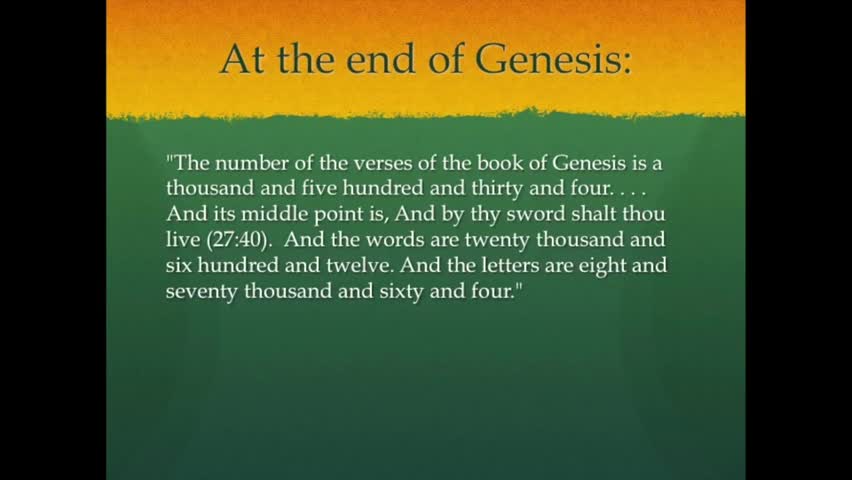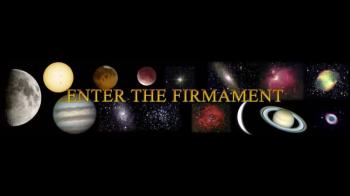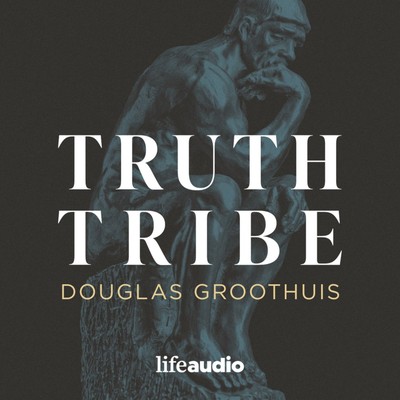Bible Study 1A: The Most Important Book, God's Inspired Word: Claims, Science & Prophetic Evidence

The Bible is God's inspired, infallible, error-free and perfect Word, and consequently the most important Book ever revealed to mankind. Bible Study 1A & 1B answer the question "What is the Bible?"
The Bible study begins by summarizing basic introductory information on the Bible--its composition between 1,400 B. C. and close to A. D. 100, its division into the Old and New Testament, and how to look up Bible verse references. It then explains that italicized words in the King James Bible (KJB) are present because the King James Version (KJV) is an extremely literal and accurate translation of the original Hebrew and Greek language text; words in italics are supplied, not for emphasis, but so that people will know what words are necessary in English but are not present in the underlying languagt text. The KJB employs "thee/thou/thy" for second person singular pronouns and "ye/you" for second person plural pronouns in the Greek and Hebrew text. Such are a few of the many reasons why this series of Bible studies employs the KJV.
The Bible claims to be God's inspired Word. Inspired means "God-breathed." 2 Timothy 3:16 teaches that "All Scripture" is God-breathed--the words of Scripture are God Himself speaking. As Matthew 4:4 explains, every word of the Bible "proceedeth out of mouth of God." Every jot and tittle of Scripture --the smallest consonant and vowel--is God's Word (Matthew 5:18). 2 Peter 1:16-21 explains that the words of the Bible are as sure as if one heard God speak directly from heaven. Nor is the meaning of the Bible ambiguous; it has only one correct interpretation.
Overwhelming evidence confirms the inspiration of the Bible. Internal evidence indicates that the Bible is self-attesting (John 7:46; Matthew 7:28-29), and anyone who is willing to do God's will will know that it is true (John 7:17). The fundamental question in receiving or rejecting the Bible is moral, not intellectual; those who reject the Bible are "scoffers" because they want to walk "after their own lusts" (2 Peter 3:3).
The Bible also has powerful external evidence in its favor. Many centuries before experimental data could establish it, the Bible taught the scientific facts that the world is round (Isaiah 40:22), the earth is suspended in empty space (Job 26:7), the ocean has currents (Psalm 8:8), blood is crucial for life (Leviticus 17:11), air has weight (Job 28:25), and others. Scripture speaks of the first and second laws of Thermodynamics (Genesis 2:2; Psalm 102:25-27). While filled with scientific truth, the Bible contains no scientific errors, or any other errors, despite being penned by over forty different people over a period of approximately 1,500 years.
The Bible also is historically accurate; archaeology confirms, vast numbers of times, its statements about nations, peoples, cities, and other facts (see the videos on archaeological evidence for the Bible on this channel).
Prophetic evidence proves the Bible is true. In Isaiah 44, Jehovah states that He is the true God, and other so-called gods are false, because only He can predict the future. The 1,817 predictions in the Bible--1,239 in the Old Testament and 578 in the New Testament--set the BIble apart from all other books that (falsely) claim to be Divine revelation. Only the Bible contains predictive prophecy-the Quran, the Book of Mormon, the Vedas, and all other religious texts do not have any.
Three examples are examined (Bible Study #4 will look at many of the predictions of the Lord Jesus Christ). First, around 700 B. C. the prophet Isaiah predicted that Israel would be taken into captivity by the Babylonians, who would destroy Jerusalem and the Jewish Temple (Isaiah 39:5-7). After a period of captivity Isaiah predicted the specific name of the Medo-Persian king who would allow the Jews to return to the Promised Land and rebuild their Temple--Cyrus (Isaiah 44:28). Only God can predict the exact name and actions of a world ruler 150 years before his birth.
Second, the prophet Ezekiel, writing around 587 B. C., makes numbers of very specific predictions about the city of Tyre (KJV, "Tyrus") in Ezekiel 26. The Babylonian king Nebuchadnezzar / Nebuchadrezzar would devastate the mainland city of Tyre, but the island city would escape. Then Alexander the Great in 332 B. C. would subdue the island city of Tyre by taking the material of the mainland city and building a land-bridge to the island city. Finally, after successive waves of attack, the ancient city of Tyre and capital of the Phoenician empire would never be rebuilt, a prophecy fulfilled in A. D. 1291. Only God can make such specific predictions about the future.
Third, around 1400 B. C. Moses predicted details of the Jewish exiles of A. D. 70 and A. D. 135 at the hands of the Romans (Deuteronomy 28) and the history of Israel between that period and modern times, until Israel's predicted restoration as a nation in A. D. 1948.
Overwhelming evidence proves the Bible is God's Word.
The Bible study begins by summarizing basic introductory information on the Bible--its composition between 1,400 B. C. and close to A. D. 100, its division into the Old and New Testament, and how to look up Bible verse references. It then explains that italicized words in the King James Bible (KJB) are present because the King James Version (KJV) is an extremely literal and accurate translation of the original Hebrew and Greek language text; words in italics are supplied, not for emphasis, but so that people will know what words are necessary in English but are not present in the underlying languagt text. The KJB employs "thee/thou/thy" for second person singular pronouns and "ye/you" for second person plural pronouns in the Greek and Hebrew text. Such are a few of the many reasons why this series of Bible studies employs the KJV.
The Bible claims to be God's inspired Word. Inspired means "God-breathed." 2 Timothy 3:16 teaches that "All Scripture" is God-breathed--the words of Scripture are God Himself speaking. As Matthew 4:4 explains, every word of the Bible "proceedeth out of mouth of God." Every jot and tittle of Scripture --the smallest consonant and vowel--is God's Word (Matthew 5:18). 2 Peter 1:16-21 explains that the words of the Bible are as sure as if one heard God speak directly from heaven. Nor is the meaning of the Bible ambiguous; it has only one correct interpretation.
Overwhelming evidence confirms the inspiration of the Bible. Internal evidence indicates that the Bible is self-attesting (John 7:46; Matthew 7:28-29), and anyone who is willing to do God's will will know that it is true (John 7:17). The fundamental question in receiving or rejecting the Bible is moral, not intellectual; those who reject the Bible are "scoffers" because they want to walk "after their own lusts" (2 Peter 3:3).
The Bible also has powerful external evidence in its favor. Many centuries before experimental data could establish it, the Bible taught the scientific facts that the world is round (Isaiah 40:22), the earth is suspended in empty space (Job 26:7), the ocean has currents (Psalm 8:8), blood is crucial for life (Leviticus 17:11), air has weight (Job 28:25), and others. Scripture speaks of the first and second laws of Thermodynamics (Genesis 2:2; Psalm 102:25-27). While filled with scientific truth, the Bible contains no scientific errors, or any other errors, despite being penned by over forty different people over a period of approximately 1,500 years.
The Bible also is historically accurate; archaeology confirms, vast numbers of times, its statements about nations, peoples, cities, and other facts (see the videos on archaeological evidence for the Bible on this channel).
Prophetic evidence proves the Bible is true. In Isaiah 44, Jehovah states that He is the true God, and other so-called gods are false, because only He can predict the future. The 1,817 predictions in the Bible--1,239 in the Old Testament and 578 in the New Testament--set the BIble apart from all other books that (falsely) claim to be Divine revelation. Only the Bible contains predictive prophecy-the Quran, the Book of Mormon, the Vedas, and all other religious texts do not have any.
Three examples are examined (Bible Study #4 will look at many of the predictions of the Lord Jesus Christ). First, around 700 B. C. the prophet Isaiah predicted that Israel would be taken into captivity by the Babylonians, who would destroy Jerusalem and the Jewish Temple (Isaiah 39:5-7). After a period of captivity Isaiah predicted the specific name of the Medo-Persian king who would allow the Jews to return to the Promised Land and rebuild their Temple--Cyrus (Isaiah 44:28). Only God can predict the exact name and actions of a world ruler 150 years before his birth.
Second, the prophet Ezekiel, writing around 587 B. C., makes numbers of very specific predictions about the city of Tyre (KJV, "Tyrus") in Ezekiel 26. The Babylonian king Nebuchadnezzar / Nebuchadrezzar would devastate the mainland city of Tyre, but the island city would escape. Then Alexander the Great in 332 B. C. would subdue the island city of Tyre by taking the material of the mainland city and building a land-bridge to the island city. Finally, after successive waves of attack, the ancient city of Tyre and capital of the Phoenician empire would never be rebuilt, a prophecy fulfilled in A. D. 1291. Only God can make such specific predictions about the future.
Third, around 1400 B. C. Moses predicted details of the Jewish exiles of A. D. 70 and A. D. 135 at the hands of the Romans (Deuteronomy 28) and the history of Israel between that period and modern times, until Israel's predicted restoration as a nation in A. D. 1948.
Overwhelming evidence proves the Bible is God's Word.
Today's Devotional
A Prayer for the Toxic People in Your Life - Your Daily Prayer - May 3
The key is not to allow a person’s actions to rob us of our worth for then we forget to look up for God’s grace.
Top Music Videos
Christian News
The latest news and hot topics trending among Christian music, entertainment and faith life.



 Replay this video
Replay this video






























































































































